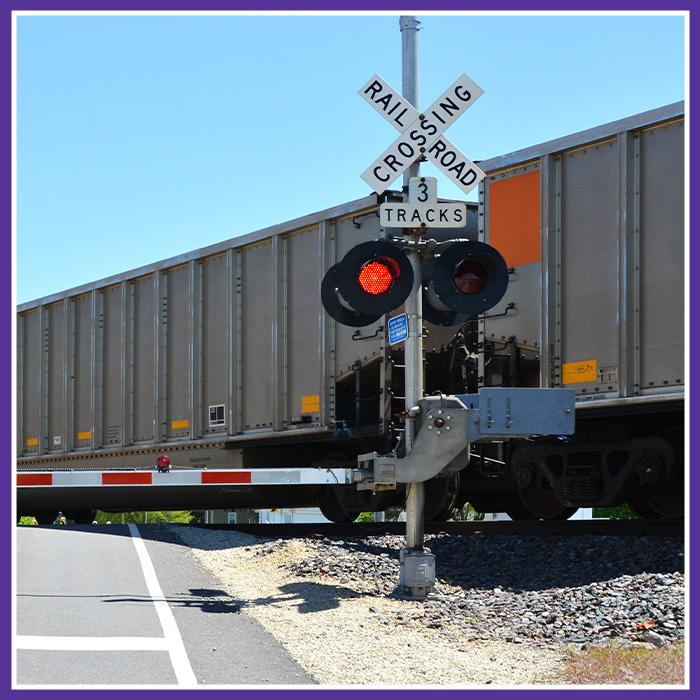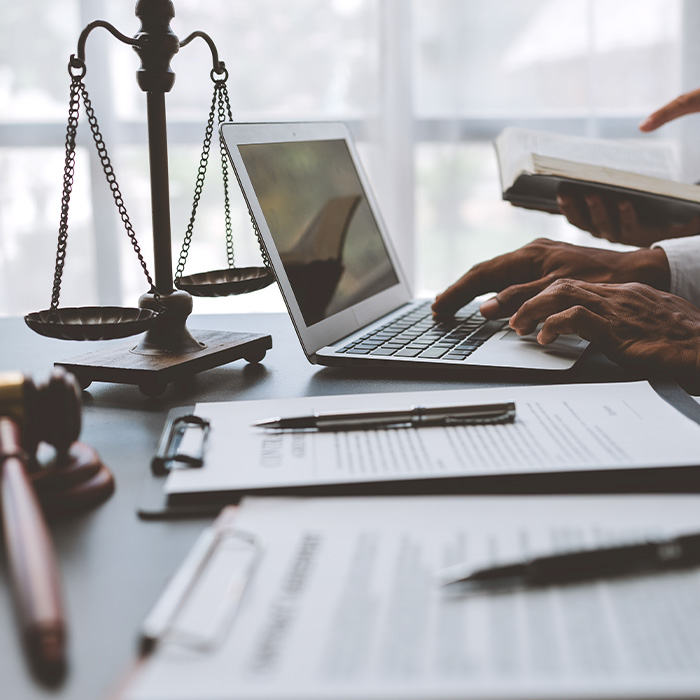
Rhode Island Train Accident Lawyer
With the exception of the occasional news story regarding a major accident, many of us do not hear about train accidents on a regular basis. However, the reality is that train accidents actually occur at an alarming rate across the country. In fact, the Federal Railroad Administration reports that on average, more than 3,000 train accidents leading to a death, injury, or property damage occur every year. These types of accidents tend to have especially devastating consequences for passengers and employees alike, resulting in catastrophic injuries that are painful, difficult, and expensive to treat, so if you or a loved one were injured in a train accident, it is critical to speak with an experienced attorney who can help you seek compensation for your medical expenses and other losses.


-
“Integrity”
“In addition to his substantive contributions to railroad grade crossing safety, I have personally observed his untiring efforts and contributions to improving the integrity of the legal system.”- Elizabeth Hardy -
“Beyond Belief”
“His knowledge of the rail industry and his willingness to share his knowledge with other people who do railroad work is beyond belief to me.”- Mike Bee -
“Given Hope”
“Through his efforts, he has single-handedly given hope to victims who are injured or killed as a result of dangerous railroad crossings”- Donald Vasos -
“Impressed”
“Nathan is a warrior fighting the railroads.”- Jonathon (Jon) C. Clark -
“Excellent Results”
“Nathan Karlin has my strongest endorsement in the field of railroad crossing cases and personal injury law.”- Joseph M. Miller -
“Would Recommend Without Hesitation”
“In each case, Nathan always possessed an incredible knowledge of the law and the facts, possessed a great talent for aggressive – strategic legal planning and trial tactics while, at the same time, displaying great skill as an effective negotiator.”- Scott McCluen -
“First Call is Nathan's Firm”
“Nathan’s knowledge and experience in handling and trying cases against these litigation savvy railroad companies gives me the confidence to know that the clients and cases I refer to him are getting the best of the best.”- James Perrin -
“Hard-Working”
“The staff is helpful, professional, and responsive.”- Tracy D.

Types of Train Accidents
Train accidents fall under a number of different categories, including:
- Derailments;
- Head-on crashes with other trains;
- Explosions and fires;
- Railroad crossing collisions with pedestrians or vehicles; and
- Cargo spills.
Although these types of accidents can be the result of a driver or pedestrian error, most can be traced to the negligence or recklessness of a train company or its employees. Many railroad crossing accidents, for instance, are the result of a failure to properly install or maintain signals and gates at the crossing itself. Other common causes include:
- Mechanical or electrical failure, such as signal errors;
- Faulty equipment and inadequately maintained signals;
- Excessive or unstable cargo loads;
- Insufficient warnings or barriers;
- Railway obstructions;
- Roadbed or track problems, including wear and tear on the rails themselves or improper track design;
- General maintenance problems; and
- Human error, including negligent operation.
Because common carriers, such as trains have a higher duty to ensure their passengers’ safety, they can be held accountable in court for failing to use the level of care required by law.
-
Purpose-Driven Representation
We handle each case with the belief that the legal system should be a tool for positive change. Our work often leads to broader safety improvements, not just individual outcomes.
-
Focused on Serious Injury Cases
Our practice centers on railroad crossing accidents and other catastrophic injuries. These complex cases demand deep experience and a commitment to long-term impact.
-
Personalized, Accessible Legal Support
We maintain a welcoming environment where clients are heard, supported, and informed. Our team approach ensures you’re never left wondering where your case stands.
-
Free Consultations, Contingency-Based FeesWe offer free consultations and only get paid if we recover compensation for you. It’s one way we make justice more accessible for those who need it most.

Track Defects
Track defects are some of the most common causes of train accidents, especially derailments. Broken rails, in particular pose a serious risk to passengers and train employees alike, as do the following problems:
- Bolt hole cracks;
- Damage caused by inclement weather, such as rain and snow;
- Fractures in the railheads;
- Chipped or flaking steel;
- Burned or flattened rails;
- Cracks in the base of the rails;
- Worn rails; and
- The growth of foliage and vegetation across the tracks.
Most of these problems are the result of normal wear and tear caused by the rapid expansion and contraction of the rails themselves, which is especially common in areas with extreme temperatures. To help prevent these types of issues, the FRA requires train companies and railroad owners to conduct regular inspections and ensure that all repairs are made correctly and with the proper materials. Companies that fail to take these steps can be held liable for damages, including medical expenses, lost wages, and pain and suffering, but only if the injured party can provide evidence of the company’s negligence.
Human Error
Although mechanical, electrical, and track failure all play a role in causing train accidents, the National Transportation Safety Board (NTSB) estimates that around one-third of all train accidents are actually the result of human error, which in turn can often be traced to:
- Inadequate employee training;
- Engineer/conductor distraction or fatigue;
- Negligent hiring;
- Improper supervision; and
- Intoxication.
When one or more of these causes can be traced to an accident, the at-fault individual and his or her employer can be held liable for damages. Examples of human error that could lead to accidents include:
- Speeding when approaching a crossing or failing to brake appropriately;
- Ignoring signals;
- Failing to sound the train’s horn at a crossing; and
- Failing to utilize proper lighting.
Engineers and conductors are not the only individuals whose mistakes can result in an accident. For instance, a construction crew’s failure to use proper materials when constructing the tracks themselves could cause a serious accident. Additionally, railroad employees who fail to comply with federal regulations when loading cargo can be held liable for resulting accidents if their actions led to a cargo spill and subsequent injuries. The company itself could also be held accountable if it failed to properly train employees on proper loading procedures.


.2506250842194.png)
.2506261042099.png)


.2506250835483.png)
